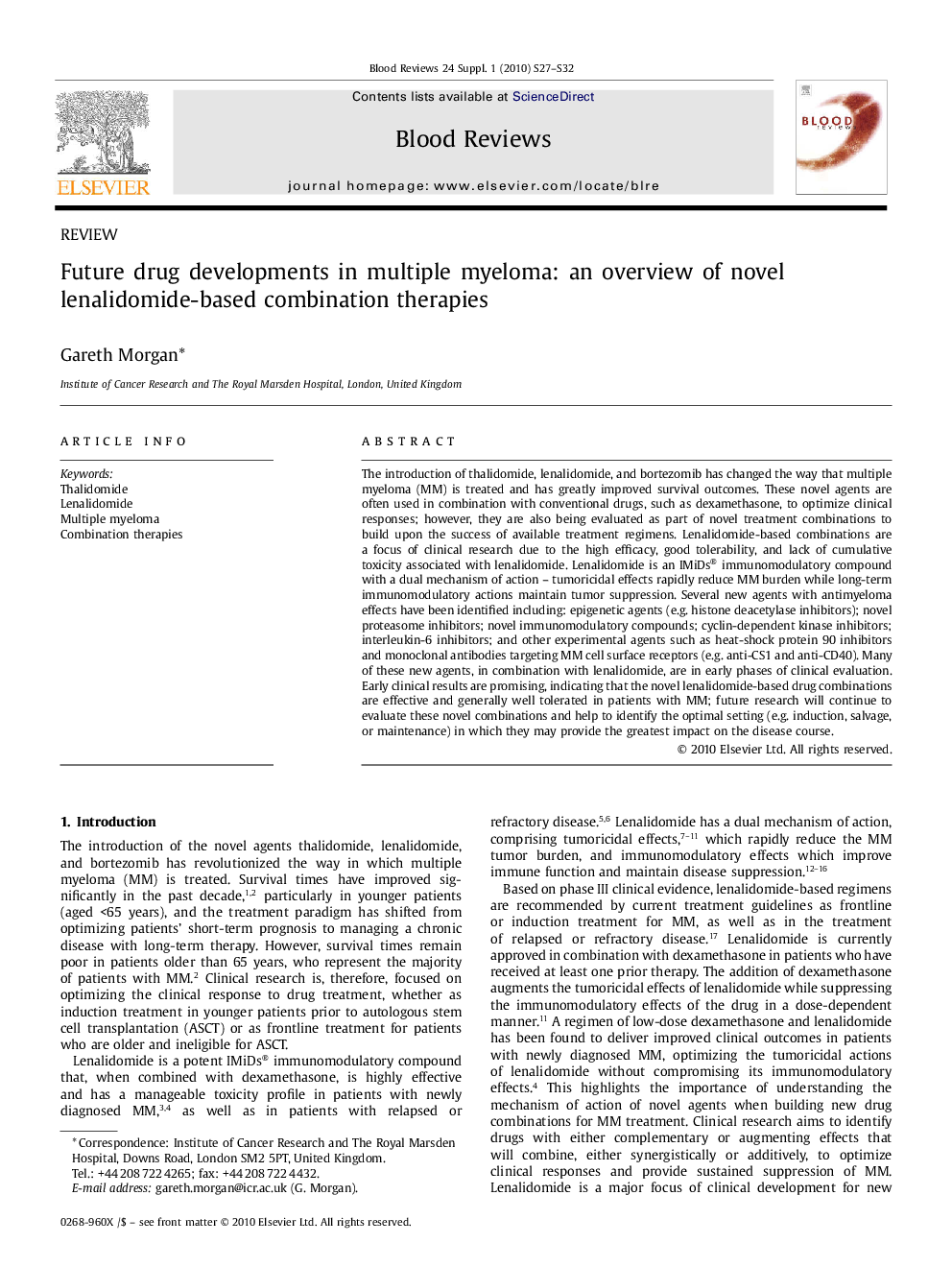| Article ID | Journal | Published Year | Pages | File Type |
|---|---|---|---|---|
| 2106576 | Blood Reviews | 2010 | 6 Pages |
The introduction of thalidomide, lenalidomide, and bortezomib has changed the way that multiple myeloma (MM) is treated and has greatly improved survival outcomes. These novel agents are often used in combination with conventional drugs, such as dexamethasone, to optimize clinical responses; however, they are also being evaluated as part of novel treatment combinations to build upon the success of available treatment regimens. Lenalidomide-based combinations are a focus of clinical research due to the high efficacy, good tolerability, and lack of cumulative toxicity associated with lenalidomide. Lenalidomide is an IMiDs® immunomodulatory compound with a dual mechanism of action – tumoricidal effects rapidly reduce MM burden while long-term immunomodulatory actions maintain tumor suppression. Several new agents with antimyeloma effects have been identified including: epigenetic agents (e.g. histone deacetylase inhibitors); novel proteasome inhibitors; novel immunomodulatory compounds; cyclin-dependent kinase inhibitors; interleukin-6 inhibitors; and other experimental agents such as heat-shock protein 90 inhibitors and monoclonal antibodies targeting MM cell surface receptors (e.g. anti-CS1 and anti-CD40). Many of these new agents, in combination with lenalidomide, are in early phases of clinical evaluation. Early clinical results are promising, indicating that the novel lenalidomide-based drug combinations are effective and generally well tolerated in patients with MM; future research will continue to evaluate these novel combinations and help to identify the optimal setting (e.g. induction, salvage, or maintenance) in which they may provide the greatest impact on the disease course.
